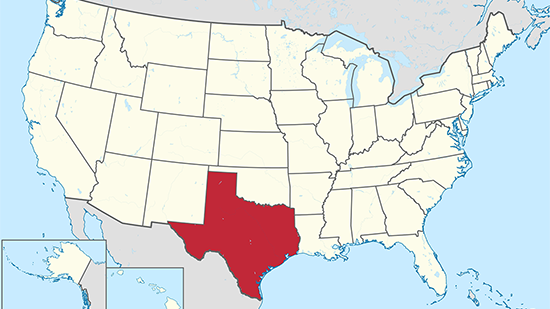Texas: Payday Lenders Skirted Regulation by Calling Themselves Credit Service Organizations

Texas Payday Lenders Called Themselves Credit Repair Organizations To Get Around Texas’ Payday Lending Law; Credit Repair Organizations Can Charge Steep Fees Under Texas Law.
“Texas has a law strictly limiting payday loans. But since it limits lenders to a fraction of what they prefer to charge, for more than a decade they have ignored it. To shirk the law, first they partnered with banks, since banks, which are regulated by the federal government, can legally offer loans exceeding state interest caps. But when federal regulators cracked down on the practice in 2005, the lenders had to find a new loophole. Just as in Ohio, Texas lenders started defining themselves as credit repair organizations, which, under Texas law, can charge steep fees. Texas now has nearly 3,500 of such businesses, almost all of which are, effectively, high-cost lenders. And the industry has successfully fought off all efforts to cap their rates.” [Cincinnati Enquirer, 8/11/13]
- Credit Service Organizations Operate Essentially In The Same Category As Non-Profit Groups That Work To Help People Rebuild Credit. “Payday and title lenders require borrowers to pay the principle and interest back all at once, rather than in payments. When borrowers are unable to repay, the entire loan is rolled over and continues to build interest. Many states have made such lending illegal, but Texas allows the lenders to operate as credit service organizations – essentially in the same category as nonprofit groups that work to help people rebuild credit. “That loophole allows them to operate,” Ader said. “And they are targeting the most vulnerable in our community – those in poverty, the elderly and college students.” [Denton Record-Chronicle, 1/2/13]
- Texas Payday Lenders Found The Credit Service Organization Loophole In 2005; “Ironically, These Groups Are Supposed To Help Consumers Repair Credit And Provide Counseling To Consumers.” “In 2005, payday lenders found the loophole, which is unique to Texas law, allowing them to register their businesses as “credit services organizations.” Ironically these groups are supposed to help consumers repair credit and provide counseling to consumers. Now the only requirement is a $100 license fee with the secretary of state, and payday lenders can charge any interest rate they choose. Meanwhile, the Finance Commission has watched the state’s predatory lenders escape Sen. Davis, who authored legislation last session to close the loophole only to watch it die under intense lobbying, says White isn’t motivated to help consumers. “He wants to maximize profits for his company and keep them in the loophole,” she says.” [The Texas Observer, 1/21/11]
- Payday Lenders Have Gotten Around Regulations In Texas By Declaring Themselves Credit Service Organizations. “A number of states have had trouble driving out payday lenders and their triple-digit interest rates. After Texas passed a law restricting payday lenders, the companies declared themselves credit services organizations and continued high-cost lending, much as they have in Ohio. When Arizona let its payday law sunset in 2008, lenders began issuing car title loans instead.” [Plain Dealer, 6/17/14]
- Payday Loan Businesses More Than Doubled In Texas From 2006-2010 Due To The Loophole Allowing Them To Operate As Credit Service Organizations; CSO’s Were Designed To “Help People Repair Bad Credit.” “Absent these regulations, the number of payday loan businesses in Texas has more than doubled, from 1,279 registered sites in 2006 to more than 3,500 in 2010. Opponents say this industry has flourished because of a 1997 law intended to give organizations flexibility to help people repair bad credit. A loophole allowed payday lenders to qualify, giving them the freedom to operate without limits on interest rates.” [Texas Tribune, 1/5/12]
